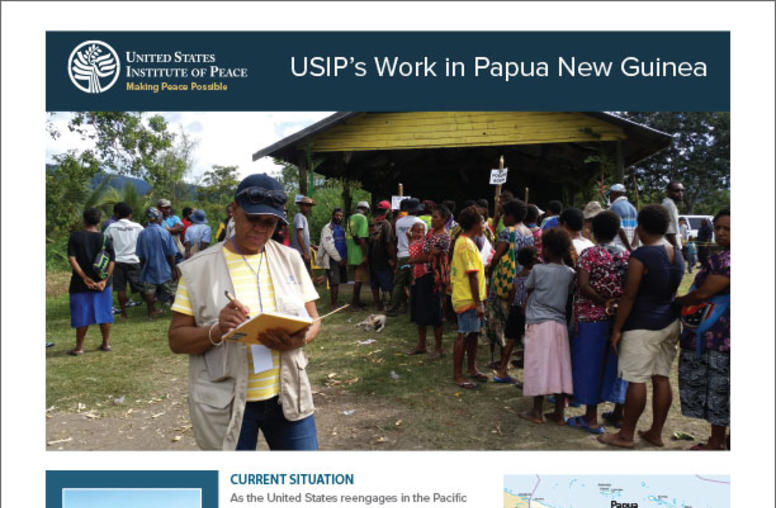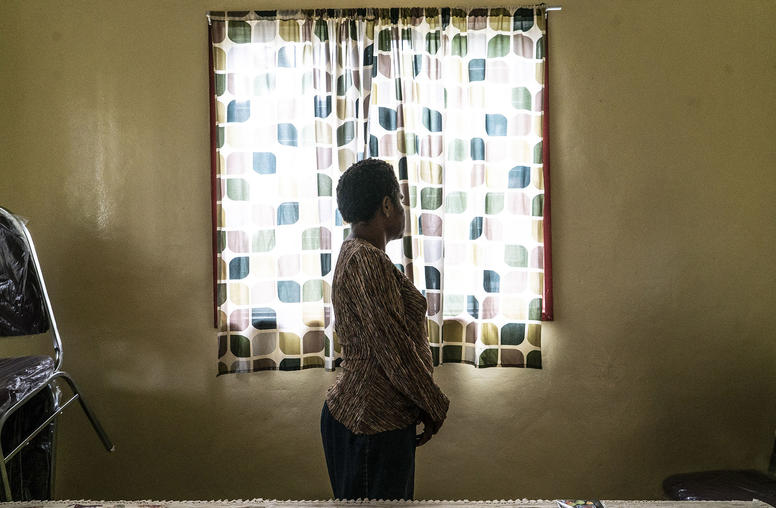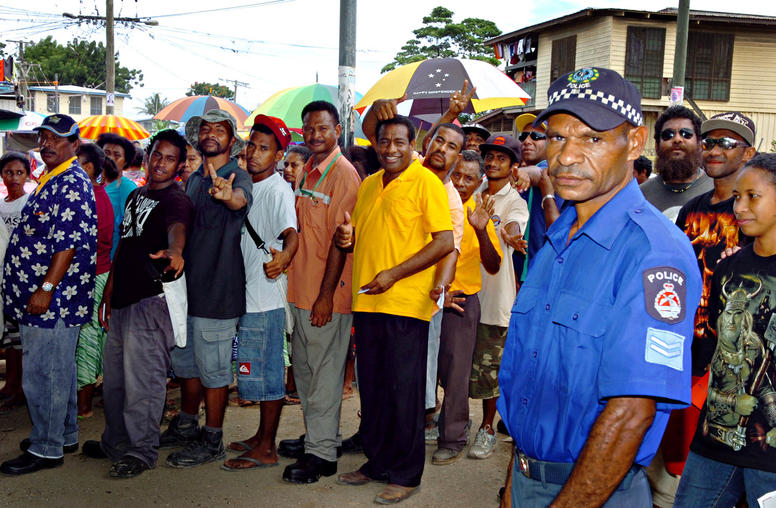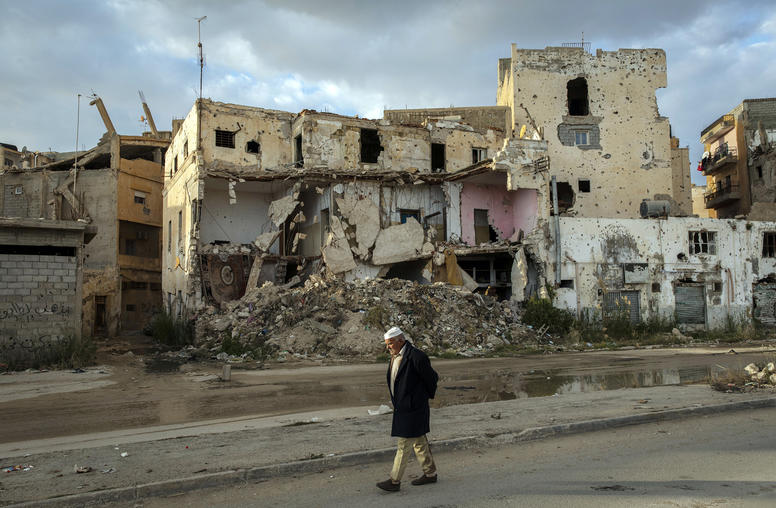 Papua New Guinea
Papua New Guinea
Papua New Guinea faces high rates of domestic and gender-based violence, as well as intercommunal violence in its mountainous highlands region, while climate change further exacerbates drivers of conflict. Papua New Guinea is in the process of negotiating the future political status of Bougainville, an autonomous region that is seeking independence, while both sides strive to uphold the 2001 peace agreement that ended a decade of civil conflict. USIP supports research, policy discussions and in-country programming to address drivers of violence in Papua New Guinea.
Learn more in USIP’s fact sheet on the Current Situation in Papua New Guinea.
A USIP pilot program, called the Male Behavior Change Program in the eastern province of Morobe, seeks to not only understand the core reasons behind the violence but to change the social norms and structures that perpetuate it.
There is also a burgeoning movement of community leaders working to not only understand what’s driving the violence in Hela Province, but to build the foundations for peace at the grassroots level in places where outside interventions have either failed or are nonexistent.
Featured Publications

The Current Situation in Papua New Guinea
As the United States reengages in the Pacific Islands, Papua New Guinea is emerging as an increasingly important U.S. partner. It is the region’s largest country, with a landmass about the size of California and a population estimated to be somewhere between 10 and 17 million. In April 2022, Papua New Guinea was designated as one of the focus countries under the U.S. Strategy to Prevent Conflict and Promote Stability (SPCPS). In May 2023, the United States and Papua New Guinea signed a Defense Cooperation Agreement.

Addressing Gendered Violence in Papua New Guinea: Opportunities and Options
Each year, more than 1.5 million women and girls in Papua New Guinea experience gender-based violence tied to intercommunal conflict, political intimidation, domestic abuse, and other causes. It is, according to a 2023 Human Rights Watch report, “one of the most dangerous places to be a woman or girl.” Bleak as this may seem, it is not hopeless. USIP’s new report identifies several promising approaches for peacebuilding programming to reduce gender-based violence and effect meaningful and lasting change in Papua New Guinea.

In the Pacific, Corruption and Poor Policing Open a Door to China
After the Pacific’s largest island nation, Papua New Guinea, recently suffered deadly rioting that included police, an official last week announced a Chinese offer to help strengthen its police force. That sequence exemplifies a rising challenge for democracy and stability in the Pacific: Many island nations suffer corruption and deficient policing that undermines the rule of law. This gap in responsive governance lets China seek influence through technical assistance drawn from its authoritarian model of policing. In response, democracies must reshape narrow, outdated approaches to security assistance.
Current Projects

Fragility and Conflict
The Global Fragility Act (GFA) is an ambitious law that makes preventing conflicts and promoting stability in countries prone to conflict a U.S. foreign policy priority. Following years of efforts that overemphasized military operations in response to extremist violence and insurgencies, the GFA requires a long-term investment to address the underlying drivers of conflict. The Biden administration has released a new strategy to implement the GFA with 10-year commitments of assistance to a group of fragile states. The GFA and the new strategy rely, in part, on recommendations made by the USIP-convened Task Force on Extremism in Fragile States.